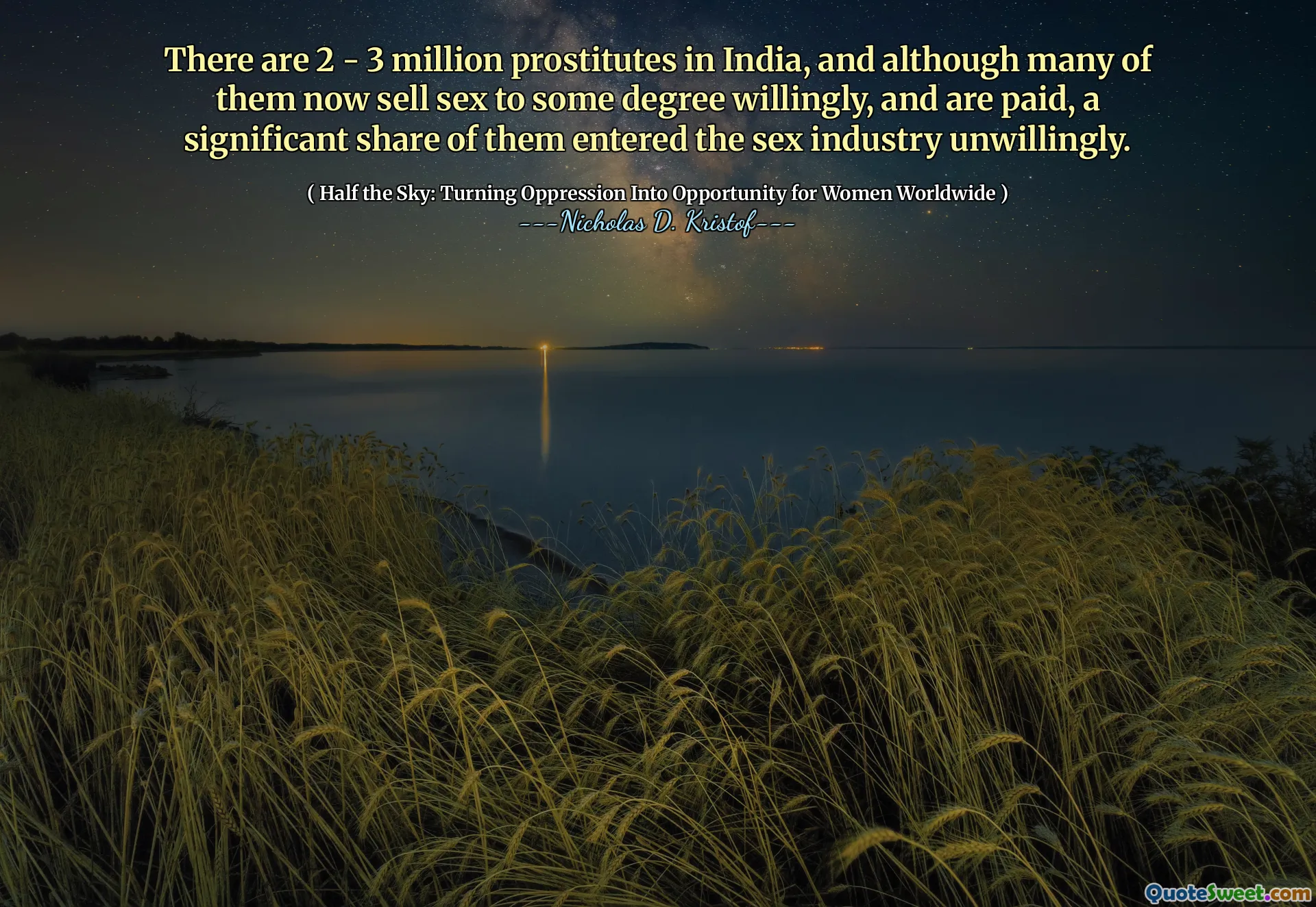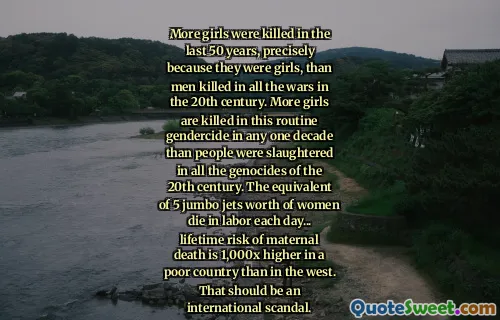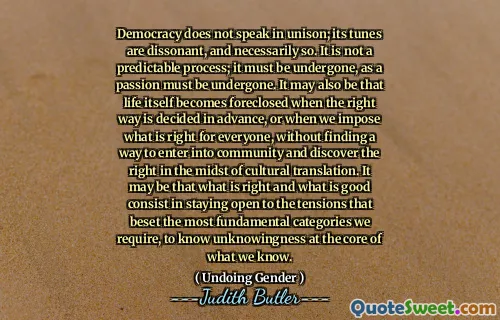
There are 2 - 3 million prostitutes in India, and although many of them now sell sex to some degree willingly, and are paid, a significant share of them entered the sex industry unwillingly.
This quote sheds light on the complex and often tragic realities faced by women in the sex industry in India. It underscores that while some women may choose this line of work willingly, perhaps due to economic hardships or lack of opportunities, a substantial number are compelled by circumstances beyond their control, such as poverty, coercion, or trafficking. The dichotomy presented highlights the importance of understanding the nuances in discussions about sex work and exploitation. It is crucial to recognize that agency may be limited for many women who find themselves pushed into the industry through systemic failures and social inequalities. This issue reflects broader societal challenges, including gender inequality, economic disparity, and inadequate legal protections. Addressing these issues requires a holistic approach that involves not only supporting those who wish to exit the industry but also tackling the root causes that force some women into it. Our societal responsibilities include creating accessible education and employment opportunities, strengthening laws against trafficking and coercion, and implementing social programs that empower women and girls. Understanding the fine line between voluntary work and coercive circumstances is essential for meaningful intervention. The topic also invites reflection on the global nature of exploitation and voluntary sex work, requiring sensitive and informed dialogue, balanced policies, and compassionate support for affected women. Ultimately, acknowledging both agency and victimhood is vital in advancing human rights and dignity for all involved.
(Half the Sky: Turning Oppression Into Opportunity for Women Worldwide) —Nicholas D. Kristof—





